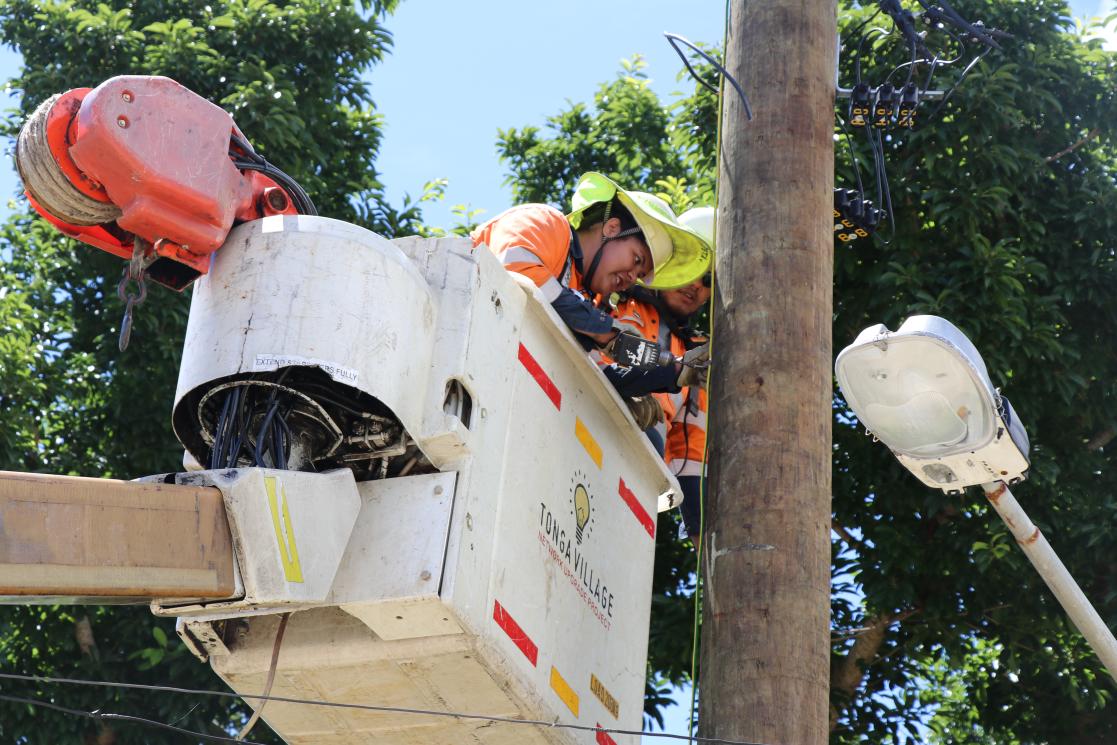RELATIONS WITH THE EU
The European Union and the Kingdom of Tonga
The Kingdom of Tonga is a Polynesian Pacific island nation. The relationship between the European Union and Tonga is governed by Partnership Agreement between the EU and the Organisation of the African, Caribbean and Pacific States (the Samoa Agreement).
Tonga and the EU work together on a number of common values, interests and challenges, such as climate change, oceans and human rights, which they address in bilateral Political Dialogues, at various ACP-EU policy dialogues, and at global multilateral levels.
Political Relations
Political Relations Political Relations Between the European Union and the Kingdom of Tonga
Tonga consists of an archipelago of 176 islands and a population of 107,000.
Tonga participates in comprehensive policy dialogues within the ACP-EU institutions from senior officials to parliamentary and ministerial levels. The EU cooperates closely with Tonga to ensure our shared commitment to universal values and human rights principles are upheld at the international level.
The EU and Tonga hold High-Level Political Dialogues to address common interests and challenges, such as climate change, oceans, human rights, development cooperation, economic and trade cooperation.
Tonga and the EU are engaged in the Pacific region through the Pacific Islands Forum (PIF) and the Pacific Community (SPC). The Organisation of African, Caribbean and Pacific States (OACPS) coordinates the ACP-EU policy dialogues.
The EU and Tonga apply a short-stay Visa Waiver Agreement, to encourage people-to-people contacts, boost tourism and invigorate business.
Economic and Trade Relations
Economic and trade relations between the EU and Tonga
Tonga is a Small Island Developing State (SIDS), categorised as Upper Middle-Income Country.
Tonga’s top exports are fish and crustaceans (33%), vegetables (20%), mineral fuels/oils (16%), oil seeds (11%), and edible fruits and nuts (5%).
Its top imports are mineral fuels/oils (21%), electrical machinery and equipment (13%), edible meat (9%), and construction machinery (6%).
Tonga benefits from the EU’s Generalised Scheme of Preferences (GSP) regime that reduces or removes import duties from many Tonga’s exports to the EU market. This helps developing countries such as Tonga to alleviate poverty and create jobs based on international values and principles, including sustainable development and human rights.
In 2018, Tonga officially requested its accession to the EU-Pacific Economic Partnership Agreement (EPA), currently applied between the EU and Fiji, Papua New Guinea, Samoa and Solomon Islands. The EPA would give all Tonga’s products duty-free, quota-free access for all its products to the EU market — the world’s largest single market.
Development Cooperation
The European Union’s Development Cooperation with Tonga
Under the European Union's funding instrument for 2021 – 2027, Neighbourhood Development and International Cooperation Instrument (NDICI), Tonga’s priority sector of support is energy. This initiative is implemented through a sector budget support; with an allocation of EUR 6.65 million (TOPS 17.22 million). The funding aligns with two intertwined strategic documents: The Tonga Energy Road Map 2021-2035 and the Tonga Energy Act.

European Union
The Tonga Energy Road Map 2021-2035 (TERM PLUS) sets ambitious targets to reduce Tonga’s dependence on fossil fuels and establish an energy system that, by 2035, is affordable, accessible, inclusive, resilient, sustainable, and secure, ultimately enhancing the livelihoods and well-being of all Tongans. The Energy Act will establish a legal framework that provides a coherent institutional, regulatory and policy framework and promotes private sector participation and research initiatives.
The sector budget support is reinforced by complementary measures, including energy technical assistance and support for the Nuku’alofa Network Project Update.

